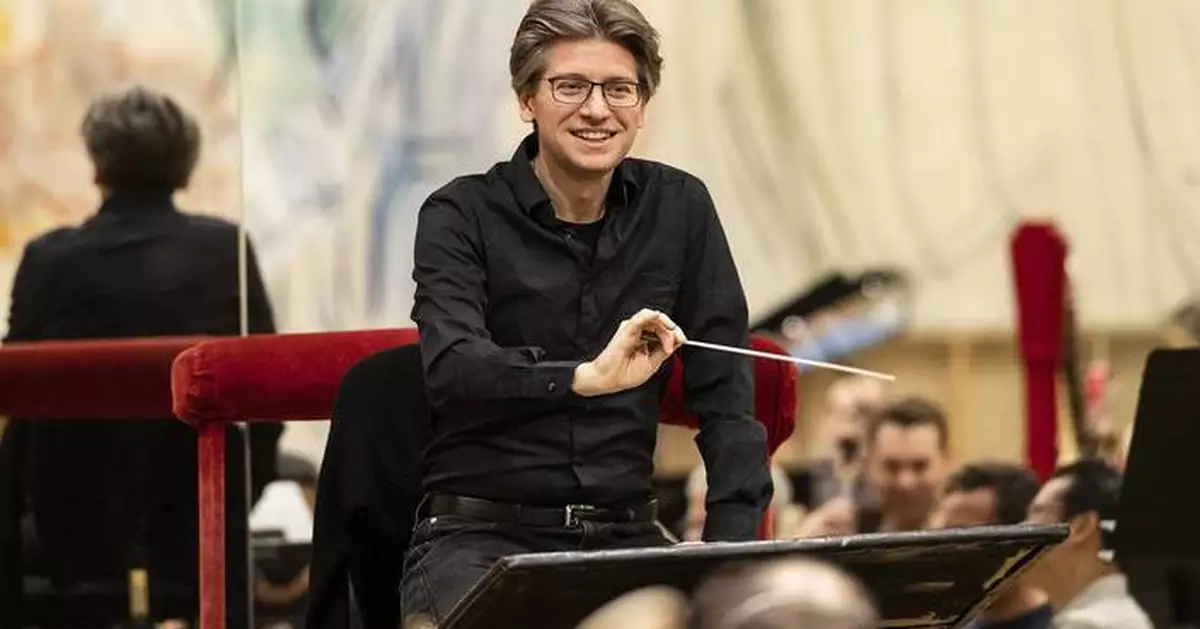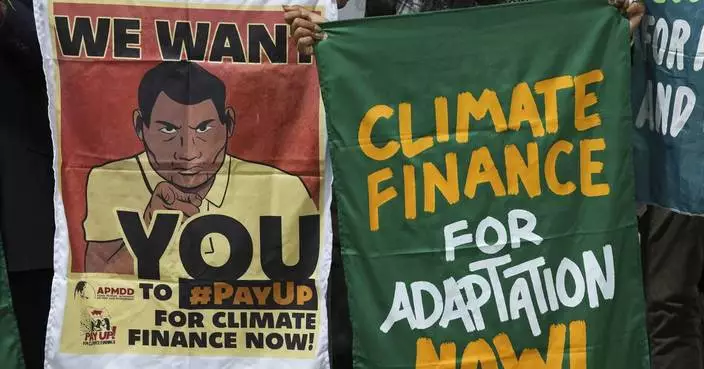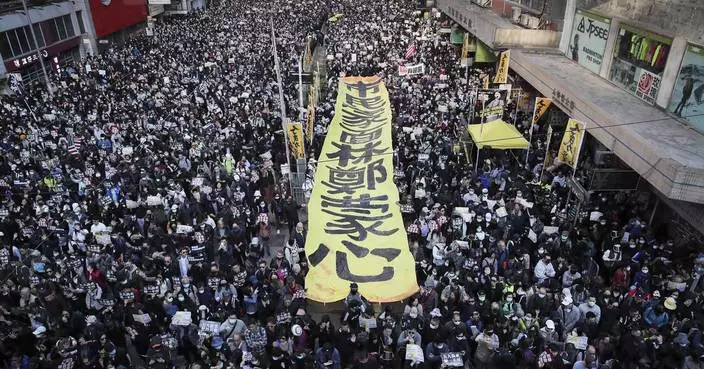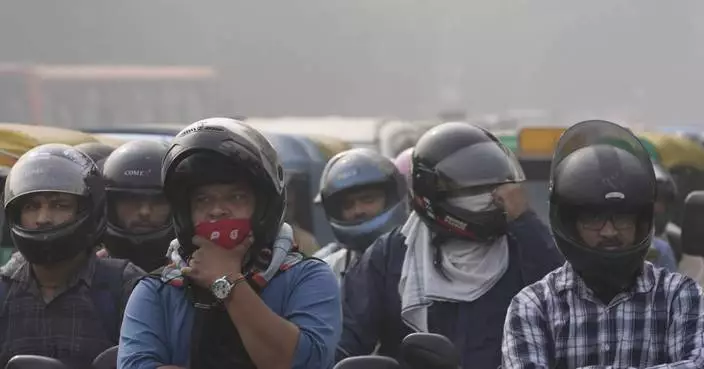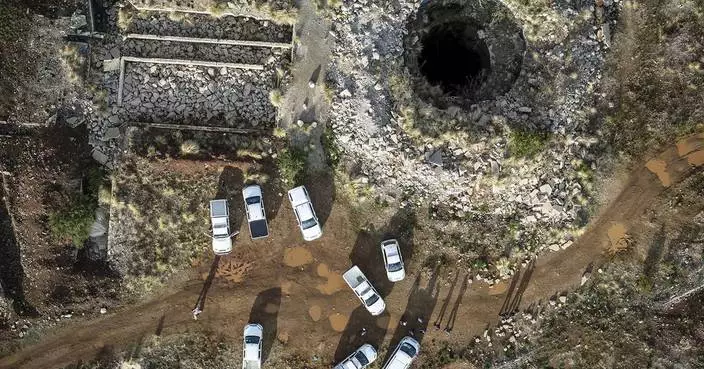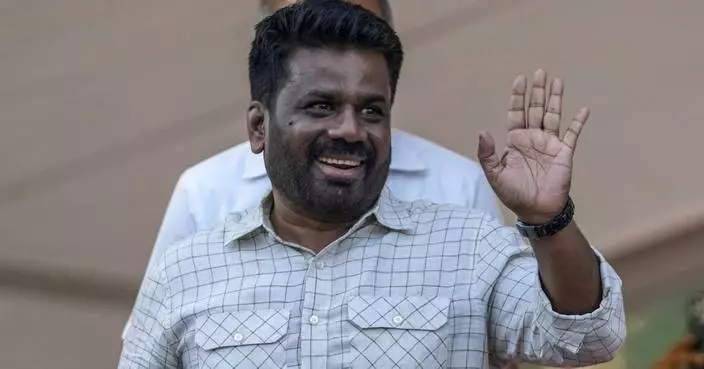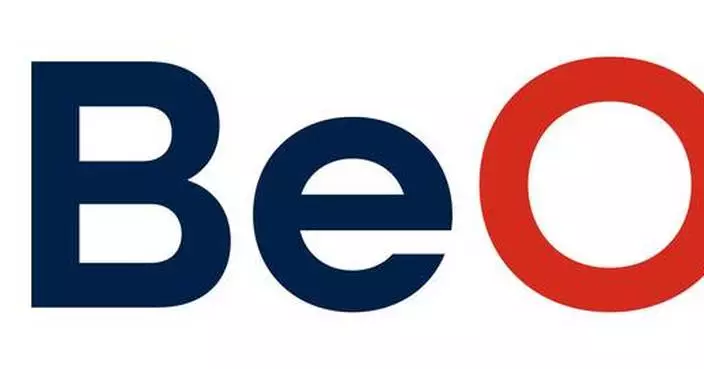NEW YORK (AP) — Daniele Rustioni will become just the third principal guest conductor of the Metropolitan Opera in its nearly century-and-a-half history, leading at least two productions each season starting in 2025-26 as a No. 2 to music director Yannick Nézet-Séguin.
Rustioni agreed to a three-year term, the company announced Wednesday. He is to helm revivals of “Don Giovanni” and “Andrea Chénier” next season, Puccini’s “La Bohème” and “Tosca” in 2026-27 and a new production of Verdi’s “Simon Boccanegra,” possibly in 2027-28.
“This all started because of the chemistry between the orchestra and me and the chorus and me,” Rustioni said. “It may be the best opera orchestra on the planet in terms of energy and joy of playing and commitment.”
Nézet-Séguin has conducted four-to-five productions per season and will combine Rustioni for about 40% of a Met schedule that currently includes 18 productions per season, down from 28 in 2007-08.
The music director role has changed since James Levine led about 10 productions a season in the mid-1980s. Nézet-Séguin has been Met music director since 2018-19 and also has held the roles with the Philadelphia Orchestra since 2012-13 and of Montreal’s Orchestre Métropolitain since 2010.
“Music directors today typically don’t spend as much time as they did in past decades because music directors typically are very busy fulfilling more than one fulltime job,” Met general manager Peter Gelb said. “In the case of Yannick, he has three, plus being very much in-demand as a guest conductor of the leading orchestras like Berlin and Vienna. To know we have somebody who’s at the very highest level of the world, which I think Daniele is, to be available on a consistent basis is something that will provide artistic surety to the Met.”
A 41-year-old Italian, Rustioni made his Met debut leading a revival of Verdi’s “Aida” in 2017 and conducted new productions in a pair of New Year’s Eve galas, Verdi’s “Rigoletto” in 2021 and Bizet’s “Carmen” last December. He took over a 2021 revival of Mozart’s “Le Nozze di Figaro” on short notice when Nézet-Séguin withdrew for a sabbatical and Rustioni also led Verdi’s “Falstaff” in 2023.
“I dared to try tempos in this repertoire that they know very well,” Rustioni said of the orchestra. “I offered and tried to convince them in some places to try to find more intimacy and to offer the music with a little bit more breathing here and there, maybe in a different space than they are used to,”
Valery Gergiev was the Met’s principal guest conductor from 1997-98 through 2008-09, leading Russian works for about half of his performances. Fabio Luisi assumed the role in April 2010 and was elevated to principal conductor in September 2011 when Levine had spinal surgery. The role has been unfilled since Luisi left at the end of the 2016-17 season.
Rustioni lives in London with his wife, violinist Francesca Dego, and 7-month-old daughter Sophia Charlotte. He has been music director of the Lyon Opera since 2017-18, a term that concludes this season. He was music director of the Ulster Orchestra in Northern Ireland from 2019-20 through the 2023-24 season and was the first principal guest conductor of Munich’s Bavarian State Opera from 2021-23.
Rustioni made his London Symphony Orchestra debut this month in a program that included his wife and has upcoming debuts with the New York Philharmonic (Jan. 8), Detroit Symphony Orchestra (Jan. 16) and San Diego Symphony (Jan. 24).
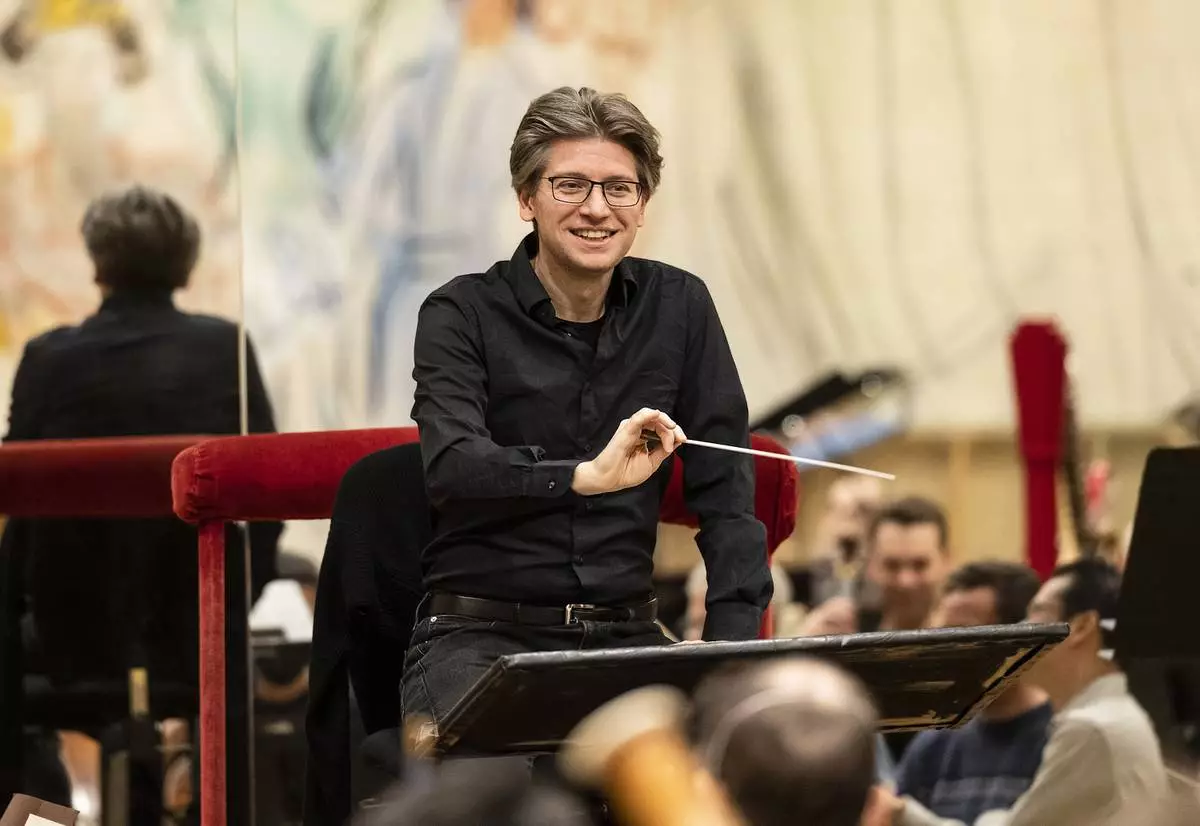
FILE - This image released by the Metropolitan Opera shows Daniele Rustioni conducting the Metropolitan Opera Orchestra during a rehearsal on Feb. 9, 2023 in New York. (Jonathan Tichler/Metropolitan Opera via AP, File)
DUBAI, United Arab Emirates (AP) — The head of the International Atomic Energy Agency warned Thursday that the “space for negotiation and diplomacy ... is getting smaller” over Iran's advancing atomic program as wars in the Mideast rage on and as President Donald Trump will return to the White House.
Rafael Mariano Grossi of the IAEA was visiting Tehran in an effort to restore his inspectors' access to Iran's program and answer still-outstanding questions over it, as he has on previous trips with limited success since Trump unilaterally withdrew the U.S. from the Islamic Republic's nuclear deal with world powers.
However, the remarks from both Grossi and his Iranian counterpart at a news conference suggested sizeable gaps still exist, even as some countries are pushing to take action against Iran at an upcoming IAEA Board of Governors' meeting.
“We know that it is indispensable to get, at this point of time, to get some concrete, tangible and visible results that will indicate that this joint work is improving (the) situation, is bringing clarification to things and in a general sense it is moving us away from conflict and ultimately war," Grossi said.
Since the deal’s collapse in 2018, Iran has abandoned all limits on its program, and enriches uranium to up to 60% purity — near weapons-grade levels of 90%.
Surveillance cameras installed by the IAEA have been disrupted, while Iran has barred some of the Vienna-based agency’s most experienced inspectors. Iranian officials also have increasingly threatened that they could pursue atomic weapons, something the West and the IAEA has been worried about for years since Tehran abandoned an organized weapons program in 2003.
Speaking at a news conference with Mohammad Eslami of the Atomic Energy Organization of Iran, Grossi stressed that while the IAEA and Iran continued to negotiate, time was not necessarily on their side.
“The fact that international tensions and regional tensions do exist — this shows that the space for negotiation and diplomacy is not getting bigger, it is getting smaller,” Grossi said.
Before appearing with Eslami, Grossi met with Iranian Foreign Minister Abbas Araghchi, who later wrote on the social platform X that “differences can be resolved through cooperation and dialogue.” However, he warned Tehran was “NOT ready to negotiate under pressure and intimidation.”
Some politicians have even suggested Iran abandon the Treaty on the Nonproliferation of Nuclear Weapons, known as the NPT, and pursue the bomb. Araghchi referred to Iran as “a committed member of NPT," though Eslami in his remarks warned Iran could retaliate if challenged at the upcoming IAEA Board of Governors' meeting. Grossi acknowledged some nations were considering taking action against Iran.
“We have repeatedly said any resolution seeking to intervene in the Islamic Republic of Iran’s nuclear affairs will be definitely followed by immediate reciprocal steps and we will not allow them to (exert) this kind of pressure," Eslami said.
Journalists at the news conference, as well as Eslami, criticized Israel for its longtime sabotage and assassination campaign targeting Iran's nuclear program. Some noted Israeli officials had threatened Iran's nuclear sites as targets for potential retaliation as Iran and Israel trade direct attacks amid the ongoing Israel-Hamas war in the Gaza Strip and Israel's ground and air offensive in Lebanon.
“The answer is in what we do here, what we, the IAEA, and Iran can do in terms of solving the questions at hand," Grossi said, describing “a situation of tension” with Iran's nuclear program at its center.
“I am here to work with Iran, (to) try to find adequate solutions to ease tensions, to move forward. This is my target. This is my concern. And I am confident that we are going to be able to do it," he said.
But as the two men ended the news conference to shouted questions from journalists, neither had offered any sign a breakthrough was imminent.
Associated Press writer Nasser Karimi in Tehran, Iran, contributed to this report.
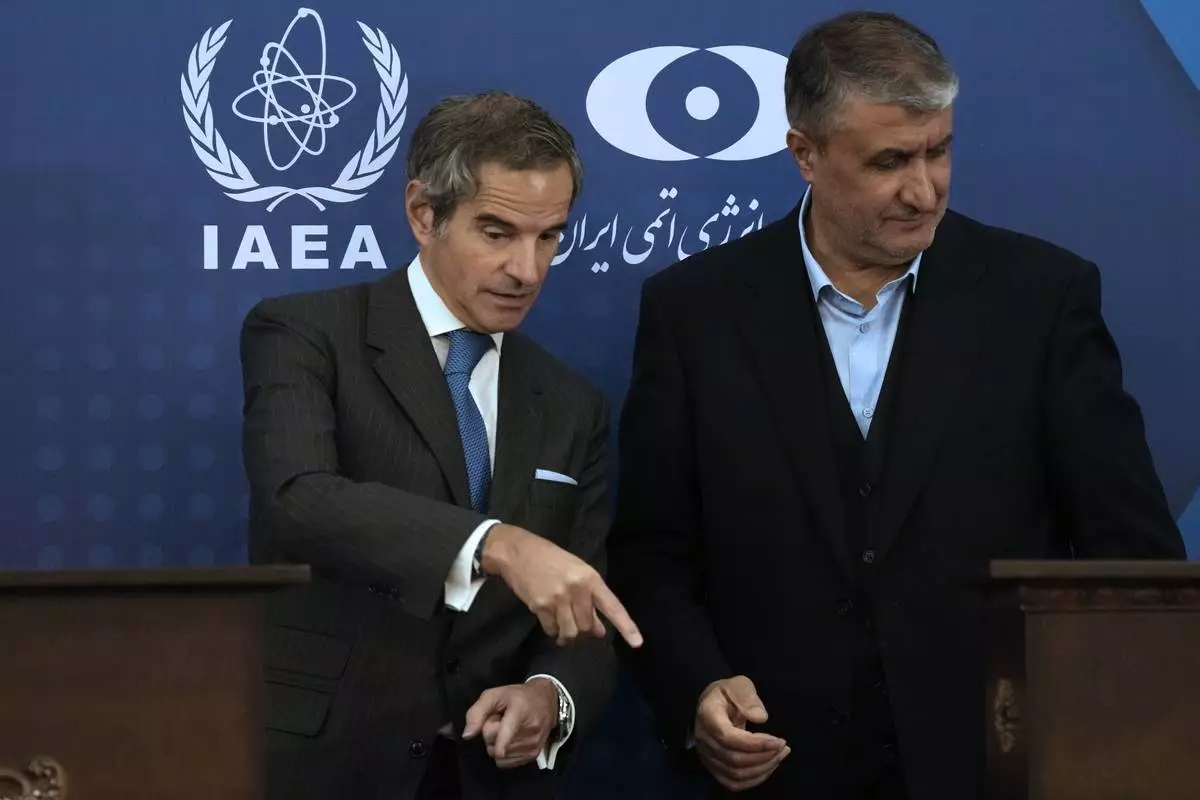
International Atomic Energy Agency, IAEA, Director General Rafael Mariano Grossi, left, gestures at the conclusion of his joint press conference with Iran's Atomic Energy Organization head Mohammad Eslami in Tehran, Iran, Thursday, Nov. 14, 2024. (AP Photo/Vahid Salemi)
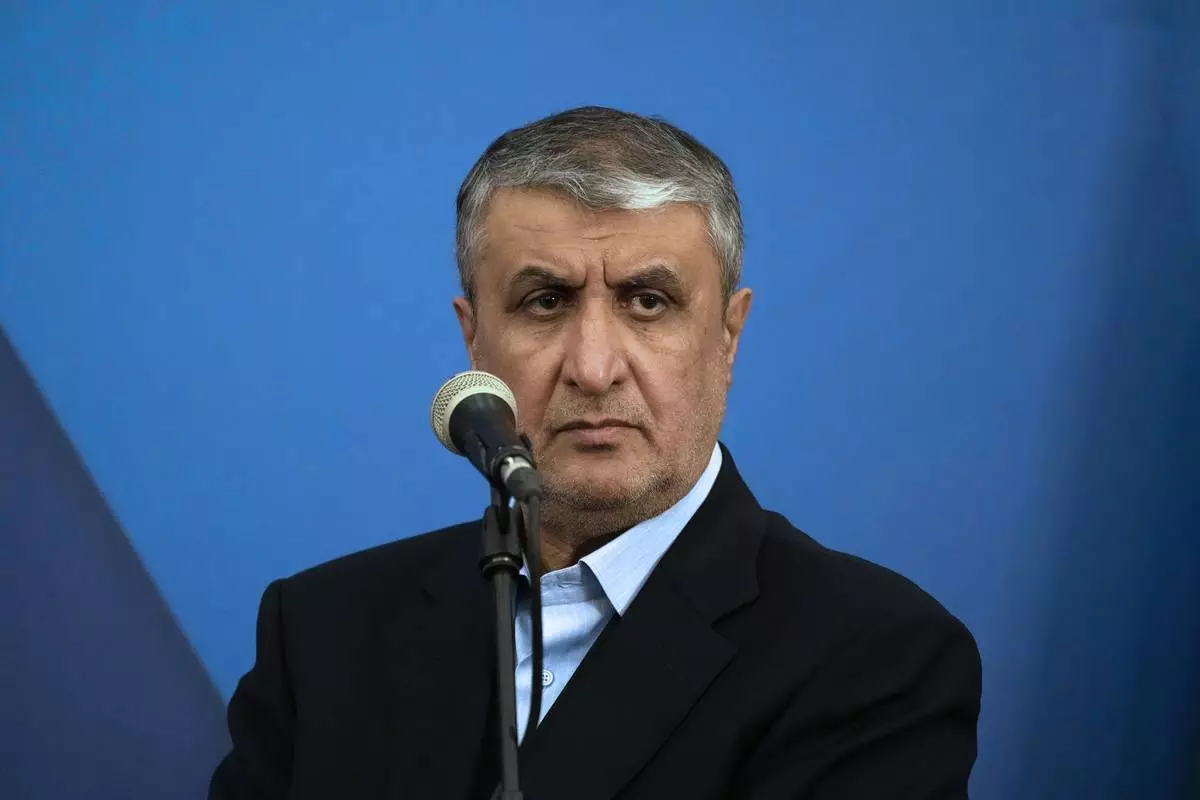
Head of Atomic Energy Organization of Iran Mohammad Eslami listens during his joint press conference with International Atomic Energy Agency (IAEA) Director General Rafael Mariano Grossi in Tehran, Iran, Thursday, Nov. 14, 2024. (AP Photo/Vahid Salemi)
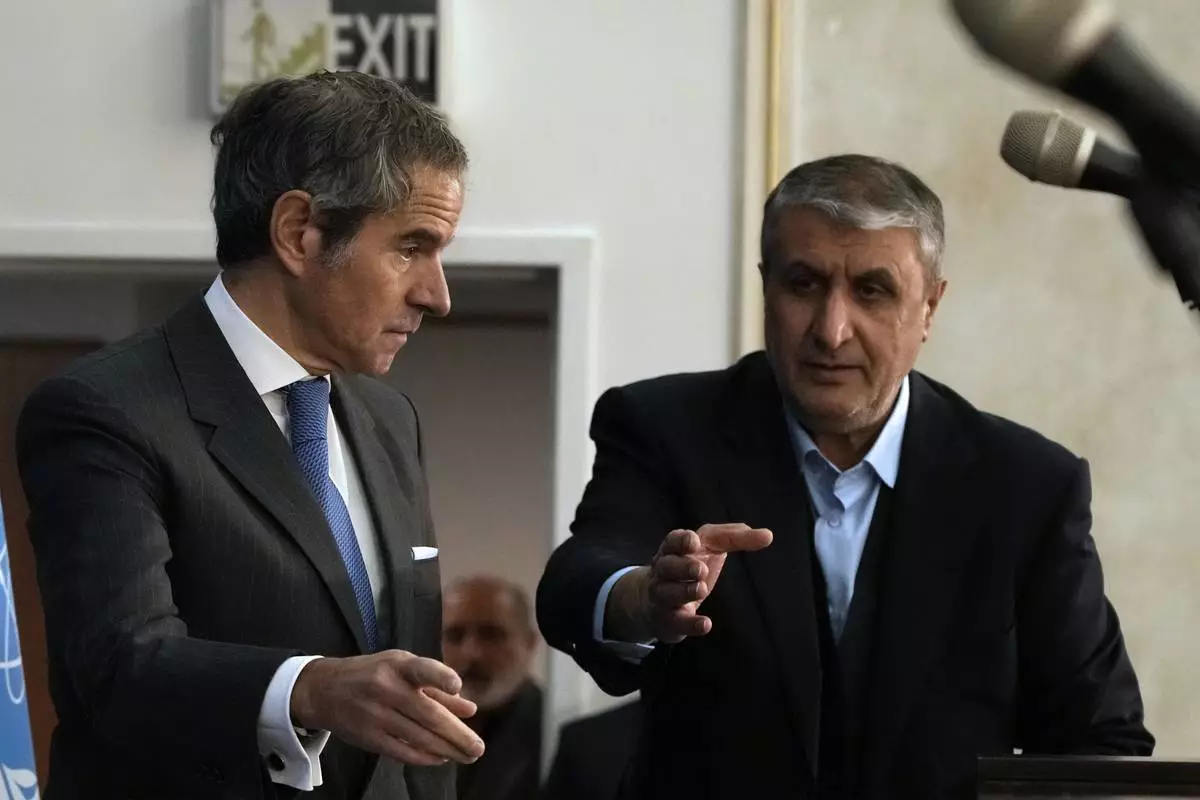
International Atomic Energy Agency, IAEA, Director General Rafael Mariano Grossi, left, and head of Atomic Energy Organization of Iran Mohammad Eslami gesture as they arrive for a press conference in Tehran, Iran, Thursday, Nov. 14, 2024. (AP Photo/Vahid Salemi)
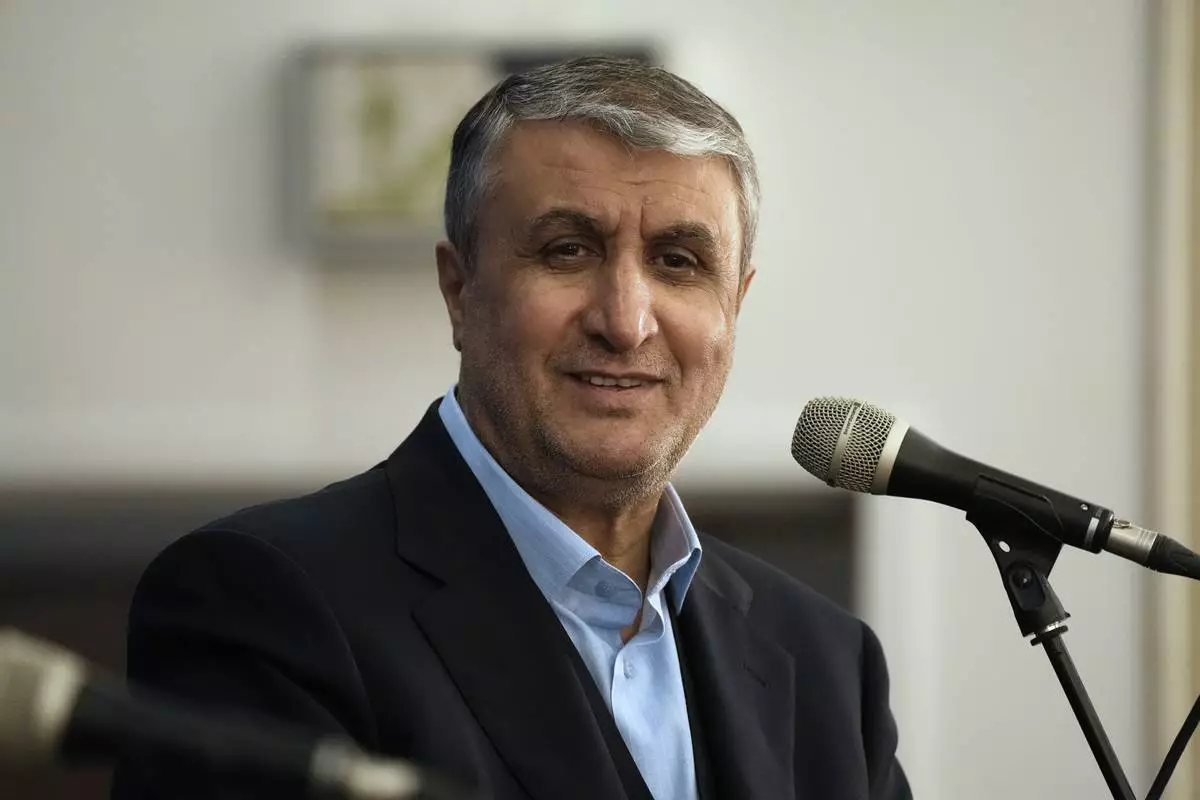
Head of Atomic Energy Organization of Iran Mohammad Eslami listens during his joint press conference with International Atomic Energy Agency (IAEA) Director General Rafael Mariano Grossi in Tehran, Iran, Thursday, Nov. 14, 2024. (AP Photo/Vahid Salemi)
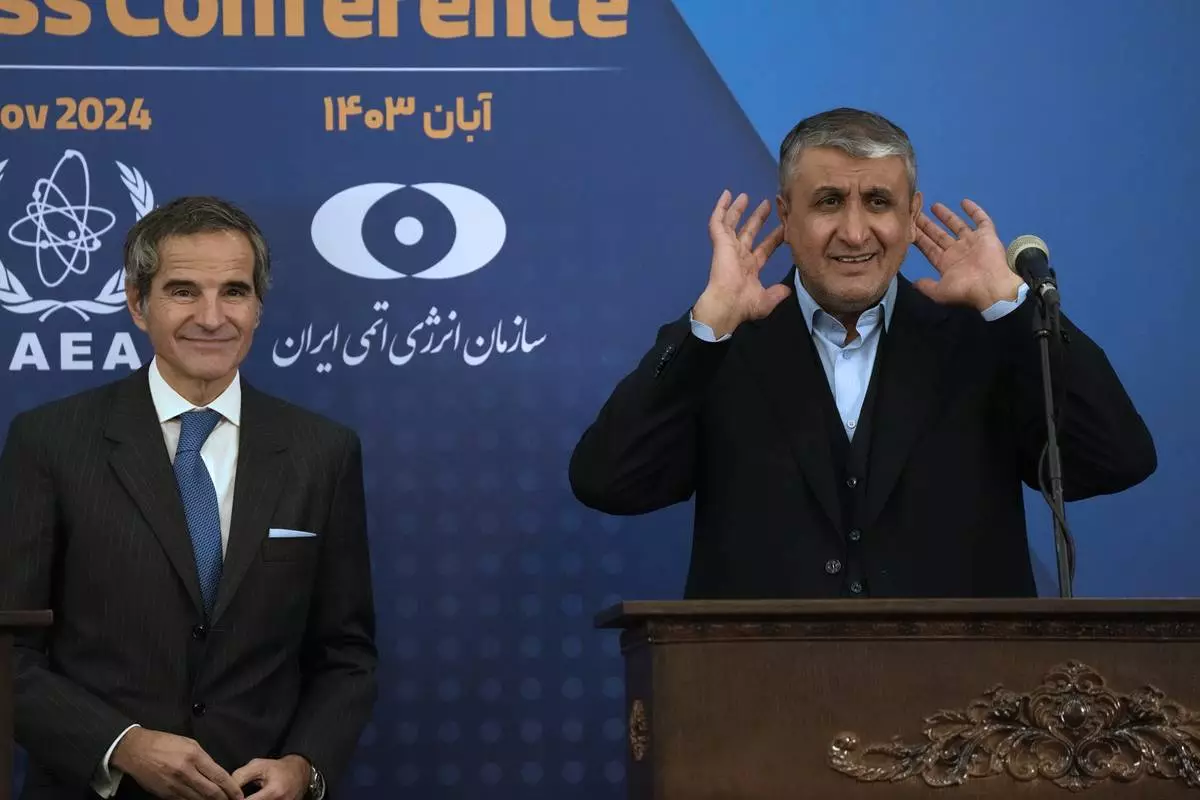
Head of Atomic Energy Organization of Iran Mohammad Eslami, right, tries to listen to a journalist at the conclusion of his joint press conference with International Atomic Energy Agency (IAEA) Director General Rafael Mariano Grossi in Tehran, Iran, Thursday, Nov. 14, 2024. (AP Photo/Vahid Salemi)
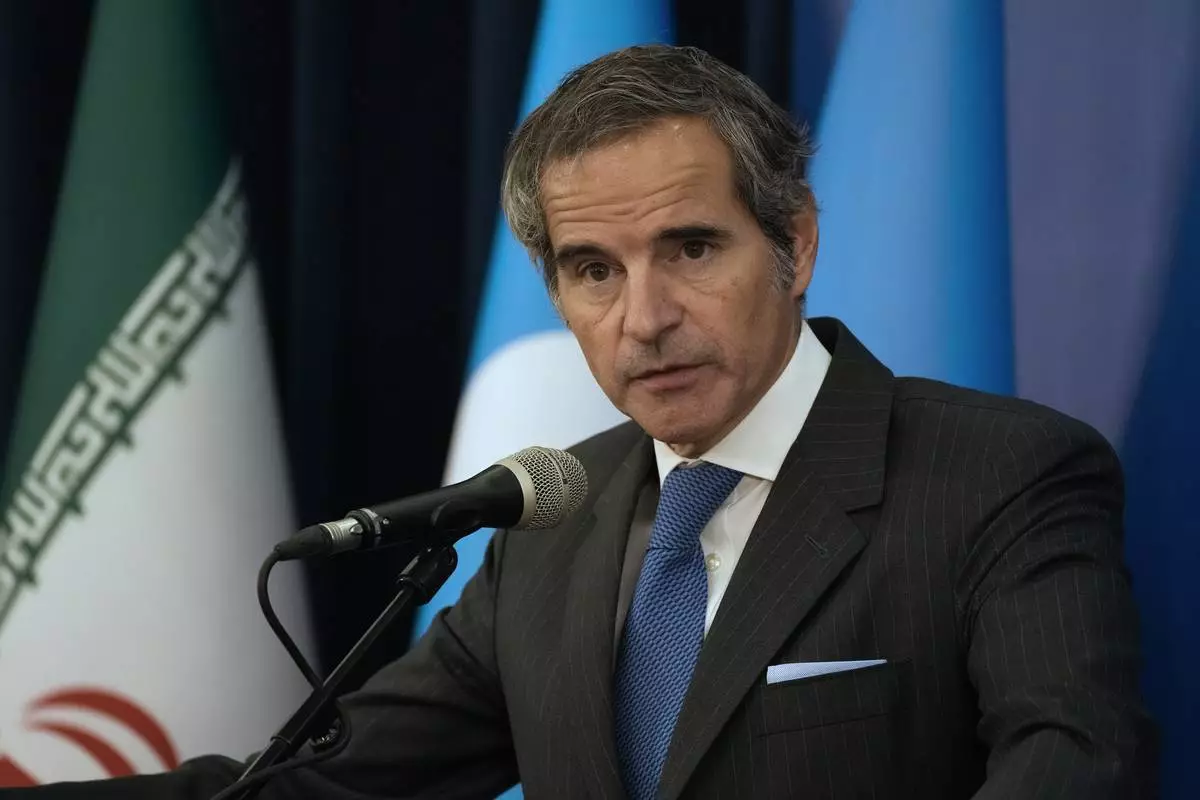
International Atomic Energy Agency (IAEA) Director General Rafael Mariano Grossi speaks during a joint press briefing with head of Atomic Energy Organization of Iran Mohammad Eslami in Tehran, Iran, Thursday, Nov. 14, 2024. (AP Photo/Vahid Salemi)
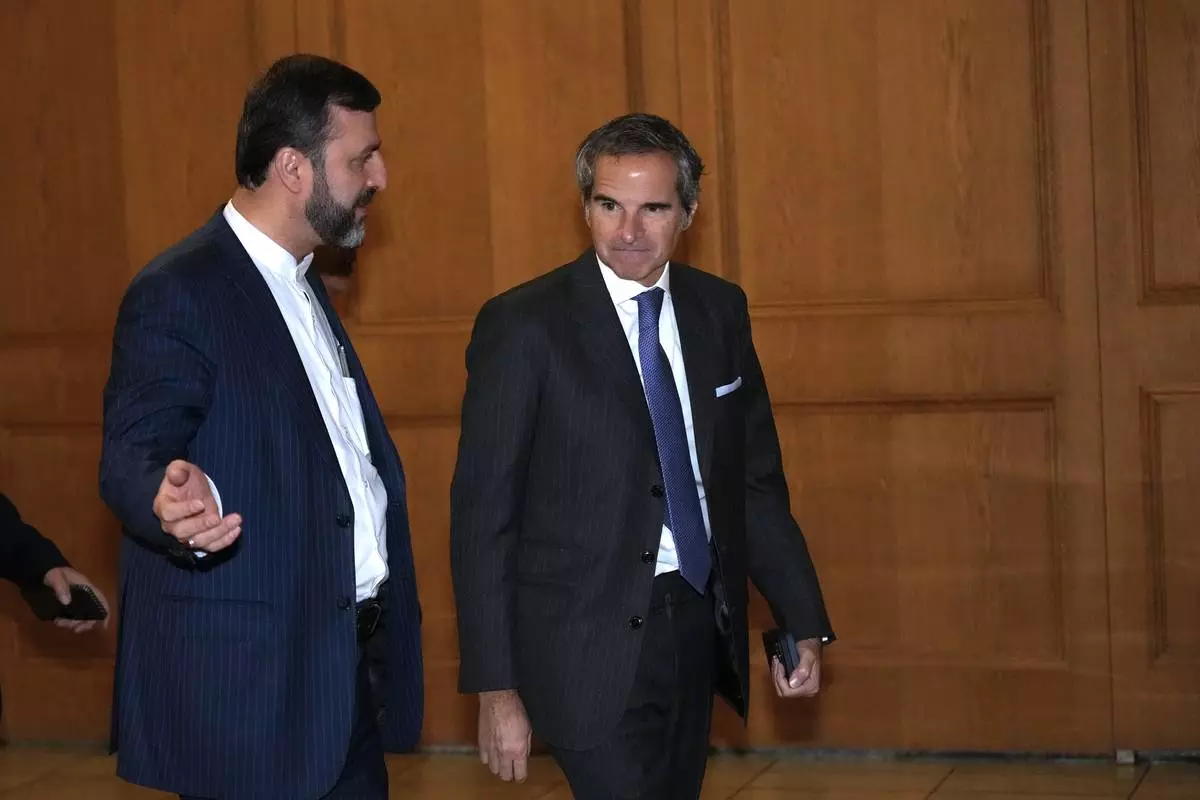
CORRECTS TO INTERNATIONAL ATOMIC ENERGY AGENCY - International Atomic Energy Agency (IAEA) Director General Rafael Mariano Grossi, right, arrives for a meeting with Iranian Foreign Minister Abbas Araghchi as he is accompanied by Deputy Foreign Minister Kazem Gharib Abadi, in Tehran, Iran, Thursday, Nov. 14, 2024. (AP Photo/Vahid Salemi)
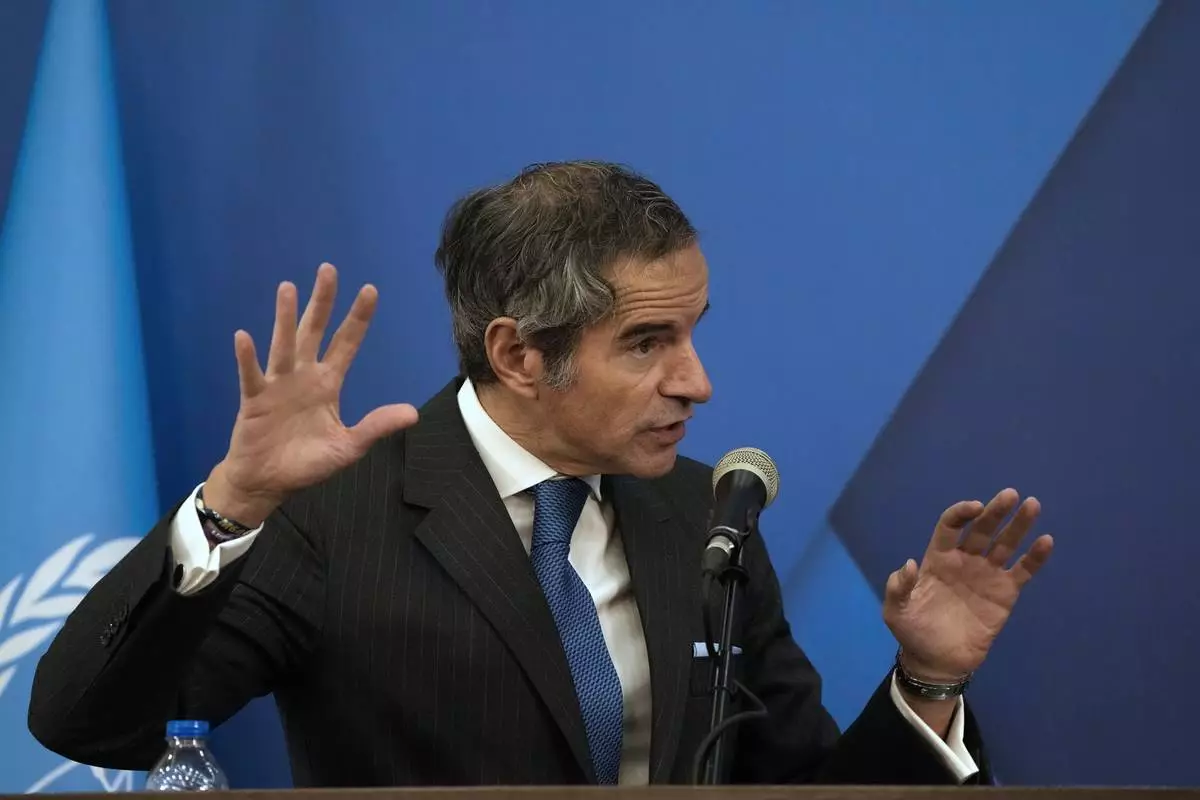
International Atomic Energy Agency, IAEA, Director General Rafael Mariano Grossi speaks during a joint press briefing with Iran's Atomic Energy Organization head Mohammad Eslami in Tehran, Iran, Thursday, Nov. 14, 2024. (AP Photo/Vahid Salemi)
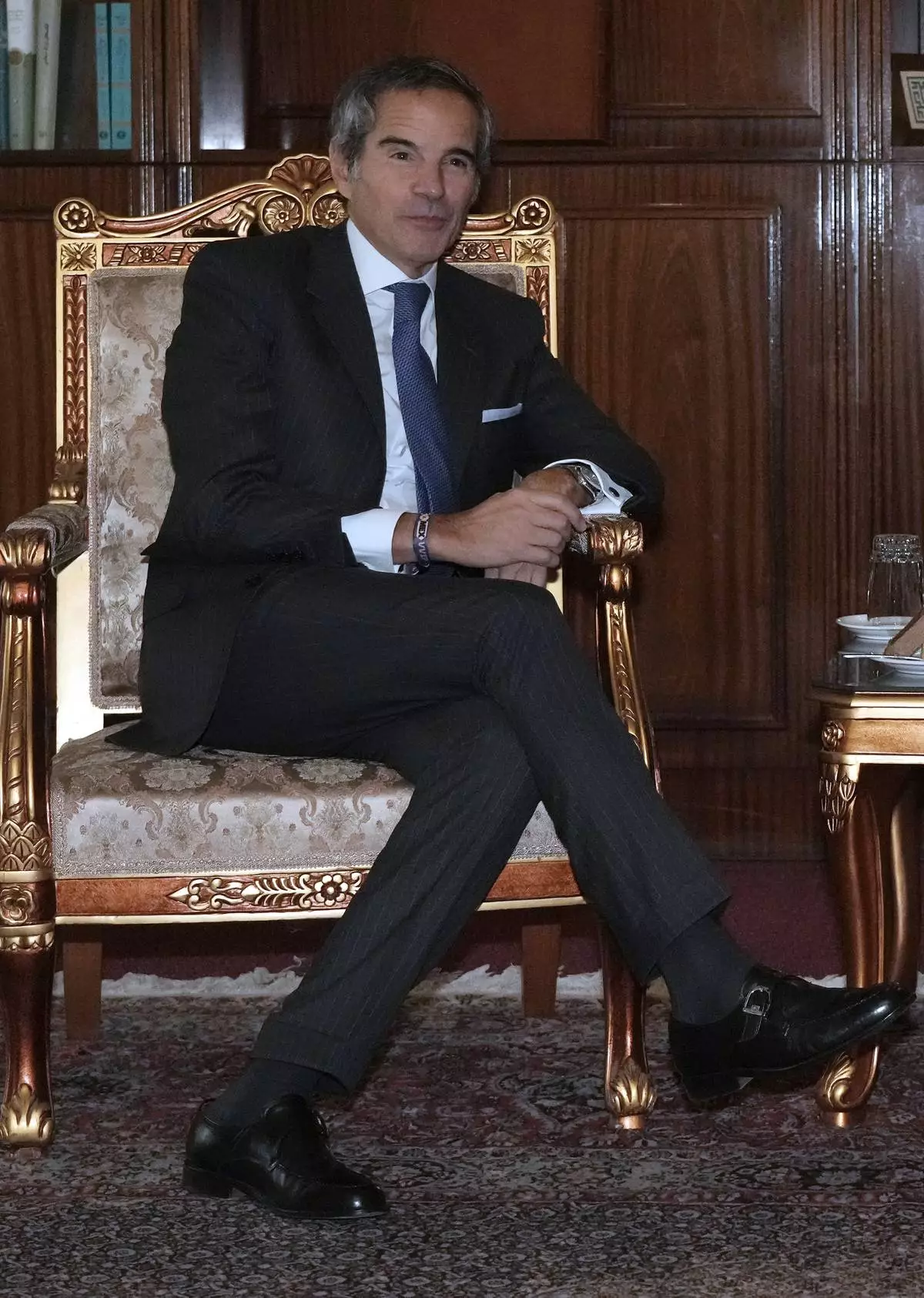
International Atomic Energy Agency (IAEA) Director General Rafael Mariano Grossi sits during a meeting with Iranian Foreign Minister Abbas Araghchi in Tehran, Iran, Thursday, Nov. 14, 2024. (AP Photo/Vahid Salemi)
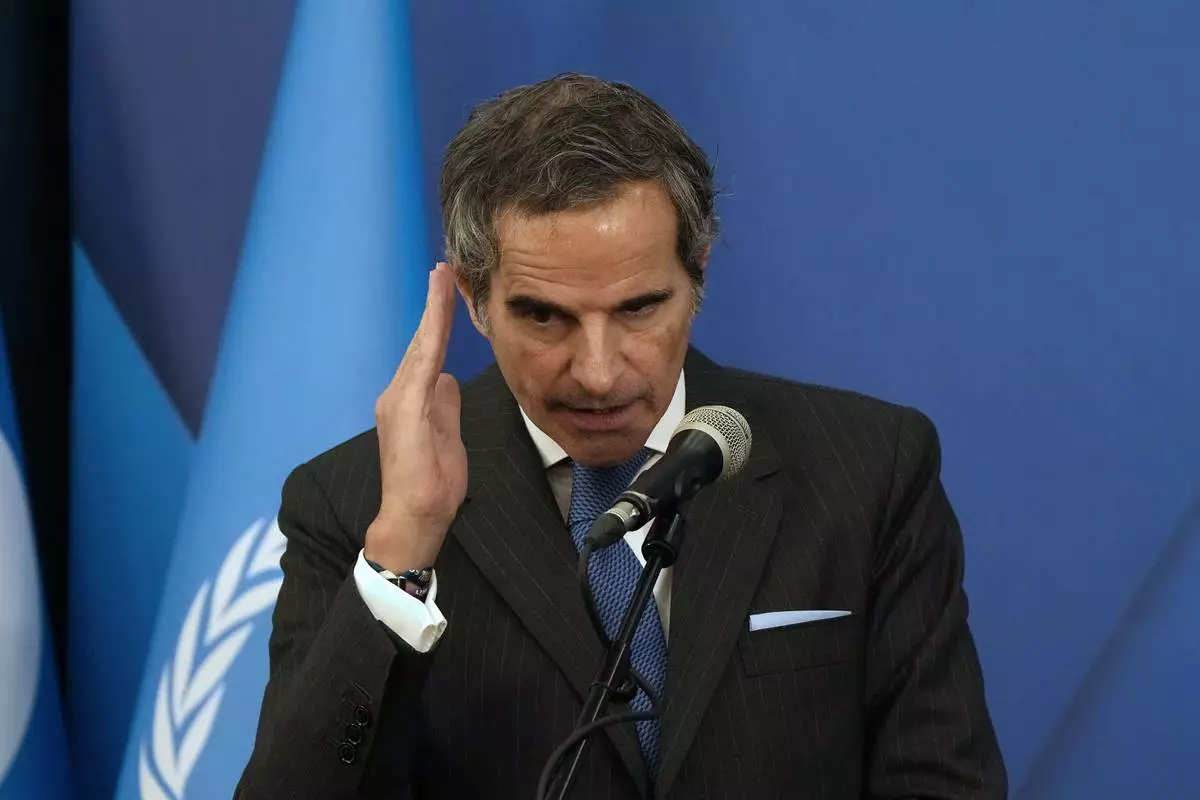
International Atomic Energy Agency, IAEA, Director General Rafael Mariano Grossi speaks during a joint press briefing with Iran's Atomic Energy Organization head Mohammad Eslami in Tehran, Iran, Thursday, Nov. 14, 2024. (AP Photo/Vahid Salemi)
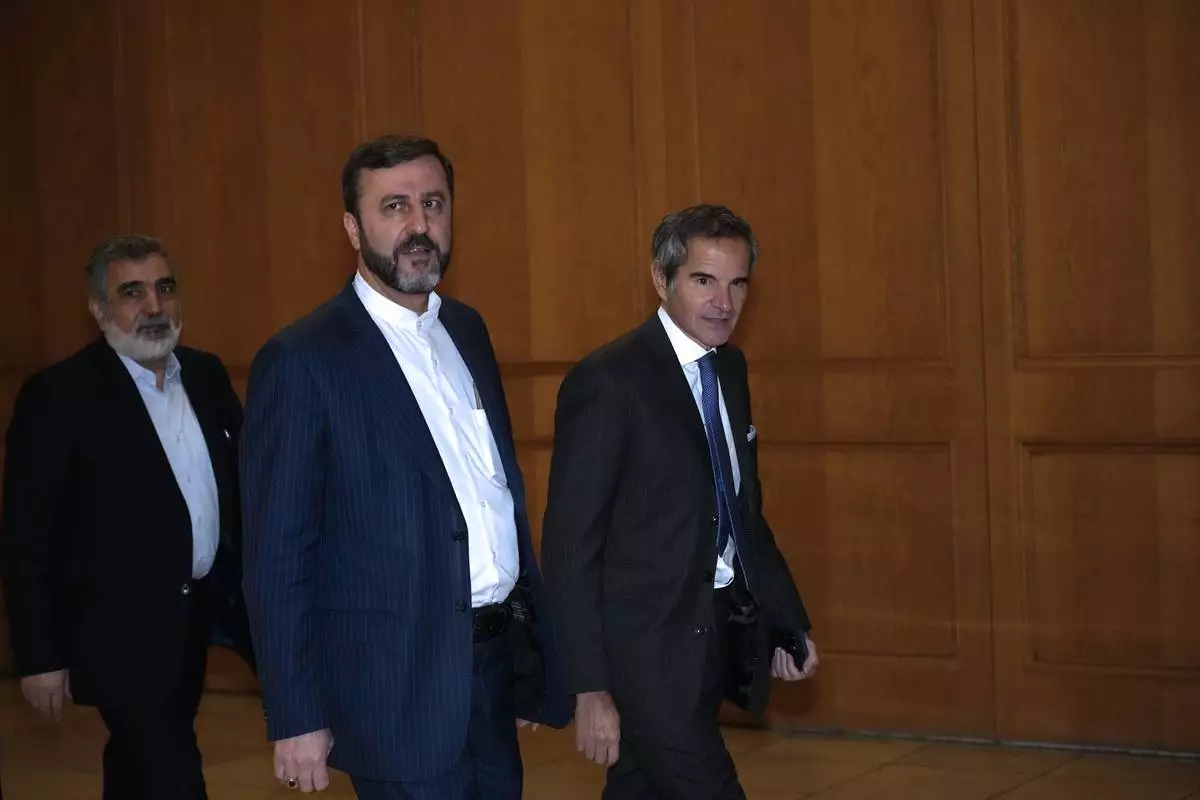
International Atomic Energy Agency (IAEA) Director General Rafael Mariano Grossi, right, arrives for a meeting with Iranian Foreign Minister Abbas Araghchi, unseen, as he is accompanied by Deputy Foreign Minister Kazem Gharib Abadi, second right, and Deputy Chief of Atomic Energy Organization of Iran, Behrouz Kamalvandi in Tehran, Iran, Thursday, Nov. 14, 2024. (AP Photo/Vahid Salemi)
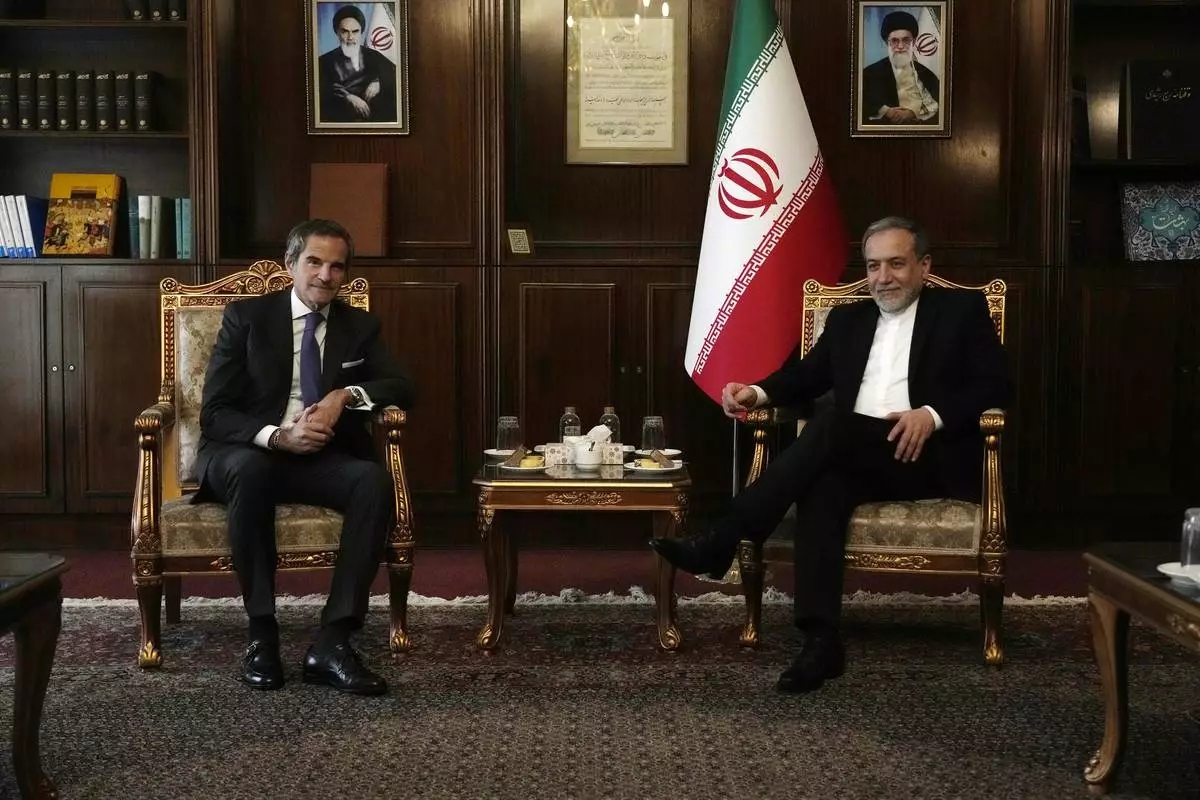
International Atomic Energy Agency (IAEA) Director General Rafael Mariano Grossi, left, meets with Iranian Foreign Minister Abbas Araghchi in Tehran, Iran, Thursday, Nov. 14, 2024. (AP Photo/Vahid Salemi)
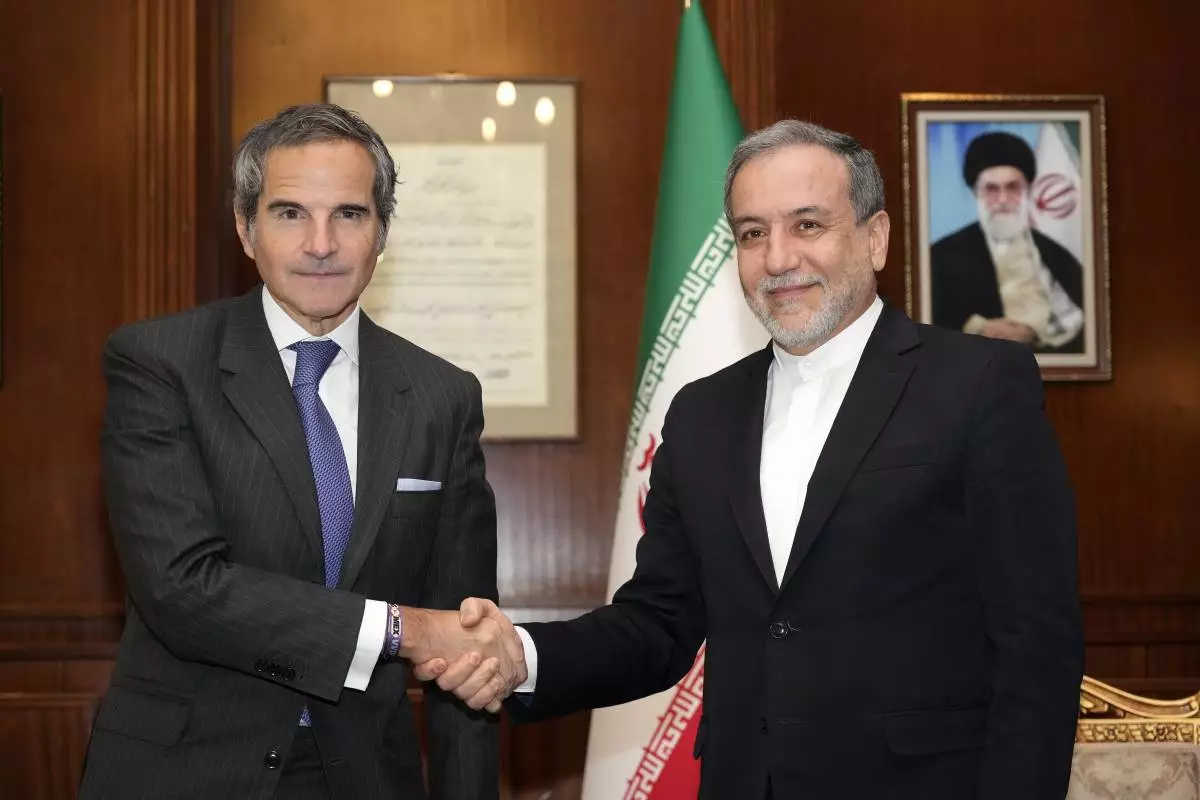
International Atomic Energy Agency (IAEA) Director General Rafael Mariano Grossi, left, shakes hands with Iranian Foreign Minister Abbas Araghchi during their meeting in Tehran, Iran, Thursday, Nov. 14, 2024. (AP Photo/Vahid Salemi)
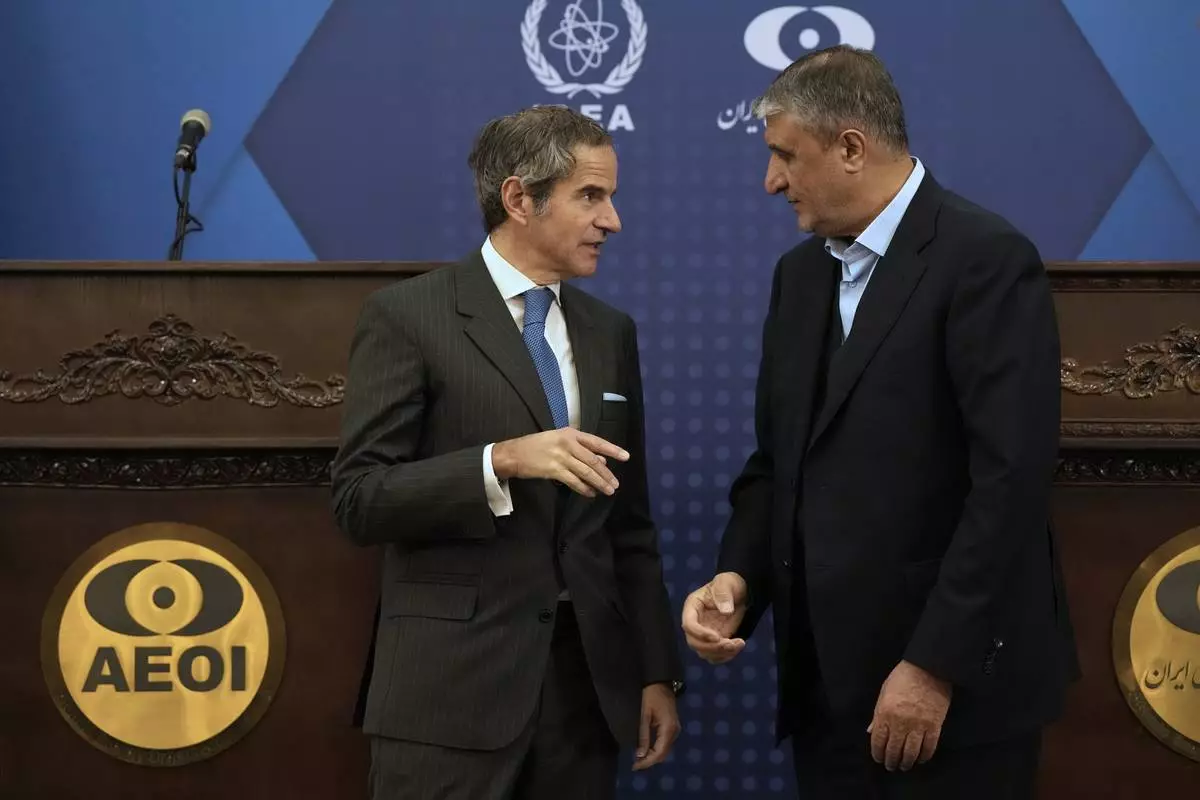
International Atomic Energy Agency, IAEA, Director General Rafael Mariano Grossi, left, talks with Iran's Atomic Energy Organization head Mohammad Eslami at the conclusion of their press conference in Tehran, Iran, Thursday, Nov. 14, 2024. (AP Photo/Vahid Salemi)



